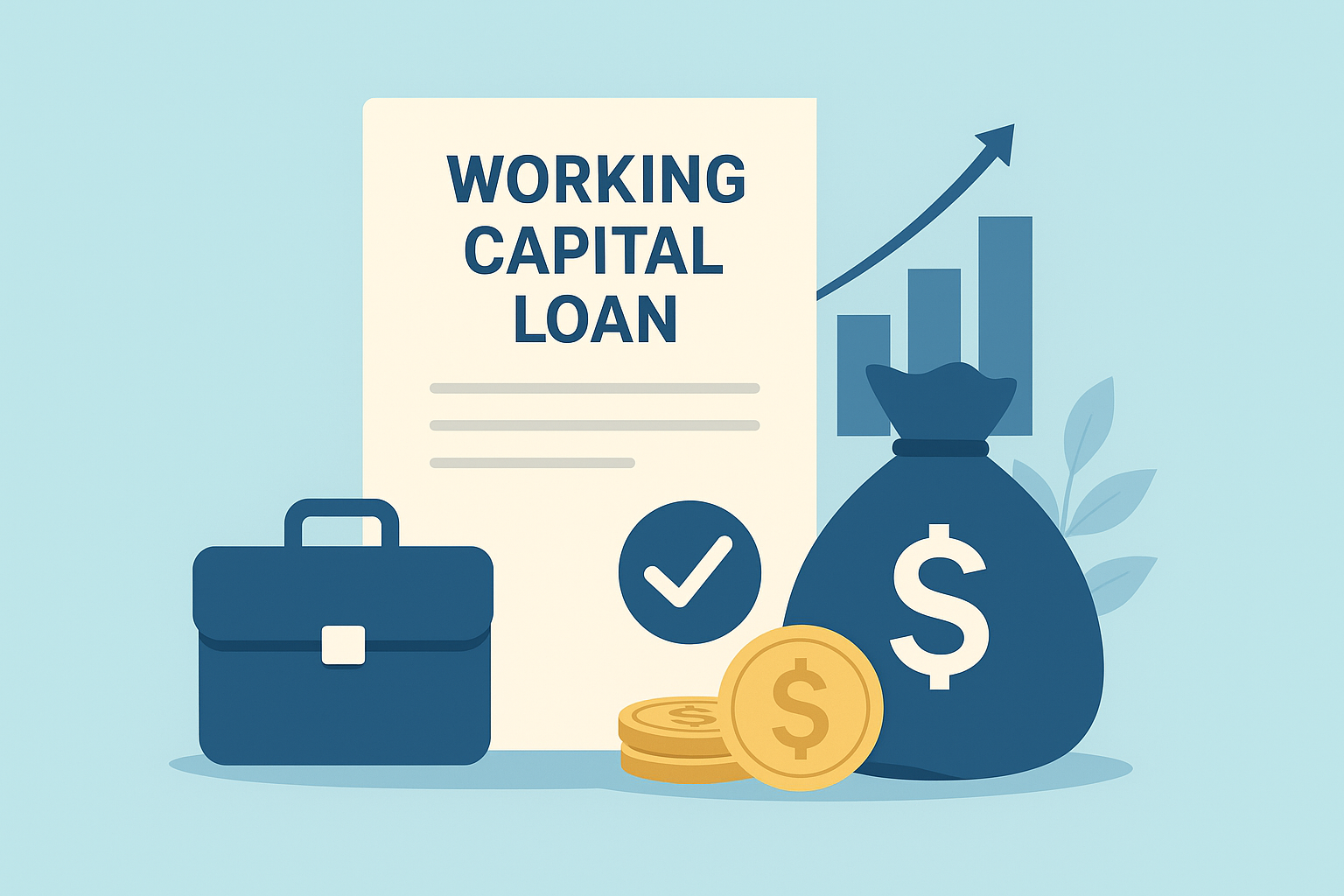Running a business requires consistent cash flow to meet day-to-day expenses, manage seasonal fluctuations, and invest in short-term growth opportunities. However, not every business always has enough liquidity at hand. This is where working capital loans step in as a vital financial solution.
In this blog write-up, we will walk you through everything you need to know about working capital loan requirements, from eligibility criteria to documentation, and even tips to improve your approval chances. Whether you are a small business owner or managing a mid-sized company, understanding these requirements can help you secure funding without unnecessary delays.
What Is a Working Capital Loan?
A working capital loan is a short-term loan designed to finance a company’s everyday operational needs, such as payroll, rent, inventory purchases, and utility bills. Unlike long-term loans meant for buying assets or expansion, working capital loans are intended to keep your business running smoothly during periods of low cash flow.
Key Features of Working Capital Loans
-
Short-term repayment periods – typically 6 to 24 months.
-
Flexible usage – funds can be used for multiple operational expenses.
-
Quick approval process – often faster than traditional bank loans.
Why Understanding Loan Requirements Matters
Before applying for a working capital loan, you must know what lenders expect. Being prepared not only increases your chances of approval but can also help you negotiate better terms.
Here’s why understanding requirements is crucial:
-
Avoid application rejections that can affect your credit score.
-
Save time by preparing the necessary documents in advance.
-
Improve approval odds with a stronger application package.
Common Working Capital Loan Requirements
While specific requirements vary by lender, most banks, credit unions, and online lenders assess your application based on similar criteria. Below are the main factors:
Business Age and Operational History
-
Many lenders require your business to be operational for at least 6 months to 2 years.
-
Startups may need to show strong personal credit or alternative funding sources.
Credit Score
-
Personal credit score: Lenders often check your personal score, especially for small businesses.
-
Business credit score: Established companies should also maintain a good business credit profile.
-
A score of 650 or higher is ideal, though some online lenders accept lower scores.
Annual Revenue
-
Lenders usually require a minimum annual revenue, which could range from $50,000 to $250,000 depending on the lender.
-
This proves your business generates enough cash flow to repay the loan.
Debt-to-Income Ratio
-
This measures your company’s total debt against its total income.
-
A lower ratio signals you are not over-leveraged, improving your approval chances.
Collateral or Personal Guarantee
-
Secured loans may require collateral such as equipment, real estate, or accounts receivable.
-
Unsecured loans often require a personal guarantee, meaning you are personally liable if the business cannot repay.
Legal Documentation
Typical documents include:
-
Business license and registration papers
-
Tax returns (personal and business) for the past 1–2 years
-
Bank statements (usually last 3–6 months)
-
Financial statements (balance sheet, income statement)
Additional Requirements by Lender Type
Different lenders have slightly different standards. Here’s how they compare:
| Lender Type | Credit Score | Time in Business | Annual Revenue | Collateral |
|---|---|---|---|---|
| Traditional Bank | 680+ | 2+ years | $200k+ | Often Required |
| Credit Union | 650+ | 1–2 years | $100k+ | Sometimes Required |
| Online Lender | 550+ | 6+ months | $50k+ | Rarely Required |
Tips to Improve Your Chances of Approval
If you’re worried about meeting the requirements, here’s how to strengthen your application:
-
Boost Your Credit Score – Pay bills on time, reduce outstanding debts, and dispute errors on your credit report.
-
Show Consistent Revenue – Avoid sudden cash flow dips before applying.
-
Prepare Documentation Early – Having organized financial records speeds up the process.
-
Consider a Co-Signer – If your credit is weak, a co-signer with strong credit can help.
-
Apply to Multiple Lenders – Increases chances while allowing you to compare terms.
Common Reasons for Loan Rejection
Knowing why applications get denied can help you avoid mistakes:
-
Poor credit history
-
Insufficient business revenue
-
Too much existing debt
-
Lack of required documents
-
Applying for a loan amount beyond your repayment capacity
How to Choose the Right Working Capital Loan
Meeting the requirements is one thing—choosing the best loan is another. Consider:
-
Interest Rates – Lower rates mean reduced repayment costs.
-
Repayment Terms – Choose a timeline that fits your cash flow.
-
Flexibility – Some lenders allow early repayment without penalties.
-
Speed – Online lenders often process applications faster.
Final Thoughts
Working capital loans can be a lifeline for businesses needing immediate operational funds. By understanding the loan requirements, preparing the necessary documents, and maintaining strong financial health, you can improve your chances of getting approved on favorable terms.

1 thought on “Working Capital Loan Requirements: Everything You Must Know Before Applying”